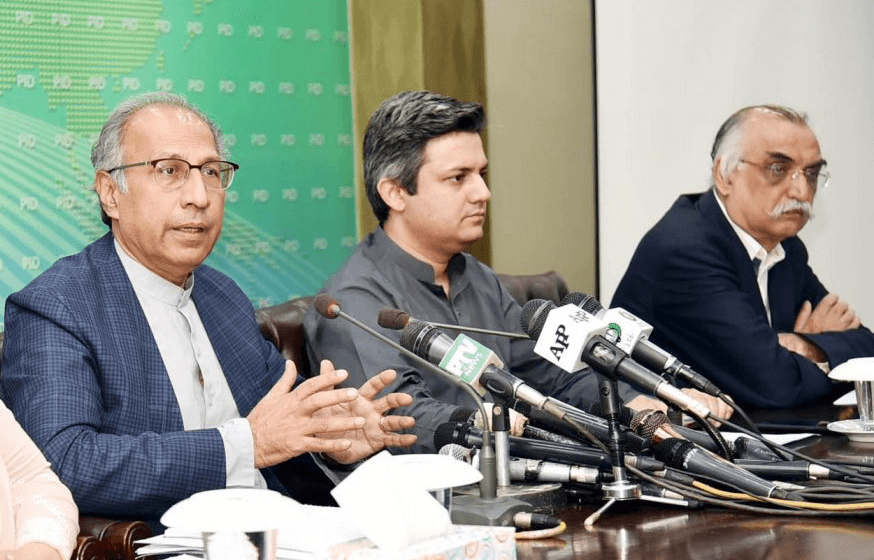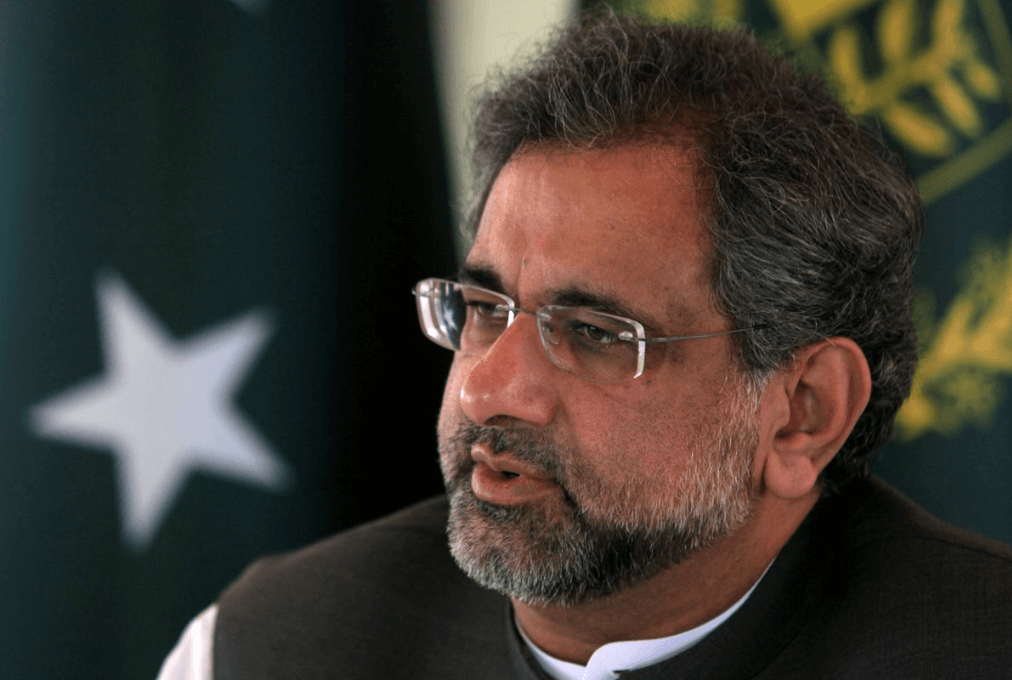This article describes my understanding on matters relating to the Asset Declaration Laws introduced in Pakistan in 2018 and 2019. These laws were introduced in special circumstances and contain special procedures.
Policy and Procedures
It would be advantageous to describe my personal involvement in the development of the aforesaid two statutes. Since there is no precedence on such enactments in Pakistan and elsewhere, therefore it is extremely important to appreciate the policy and procedures under which these special statutes were introduced.
There had been a constant struggle after 9/11 to counter the subject of ‘Terror Financing.’ In subsequent years, there has been an international policy direction that funding to terrorist organisations be stopped. In order to achieve that goal the first action is to identify the assets that may be prone to such abuse. It is to be clearly appreciated that the objective of the whole exercise locally and internationally is not to collect taxes. The only rationale and objective of that exercise is to identify the beneficial ownership of assets. It is reiterated that the objective is to identify the beneficial ownership as the abuse can only be done by a beneficial owner, not the legal owner. The distinction between legal and beneficial ownership is extremely important to combat terror financing as in the past, on the international level, there had been recognition of identifying legal ownership without disclosing the beneficial ownership. That curtain must now be lifted.

In order to achieve this objective, the OECD issued a detailed guideline on voluntary asset disclosure. These guidelines provided the basic features that should be contained in such statutes or regulations. It is reiterated that such statutes or regulations do not form part of the general scheme of income taxation law, as such laws are there to collect taxes, which is not the objective in this case. Furthermore, the whole structure is designed on a voluntary basis, as the primary objective is to identify the beneficial ownership and not to levy tax on income from which such assets have been created. For this reason, in almost all the cases, the rate of tax paid under these statutes is nominal in nature. These actions are not similar to the generic tax amnesty schemes of the past.
In 2016 there was ‘Panama Leaks,’ under which a list was issued of substantial foreign assets of Pakistani citizens. After that disclosure, a malicious campaign was started against the persons whose names appeared in the ‘Panama Leaks.’ There were all kinds of assets under that disclosure, including those disclosed in the tax records or otherwise. There were those where funds were transferred through regularised procedures of remittance or otherwise. Furthermore, there were assets in the name of people who had held public offices in the past. In the wake of this chaos, the Supreme Court of Pakistan took a suo-moto notice of the case. Along with Mr Mahmood Mandviwala, I was appointed ‘amicus curie’ in that case. I provided a written reply to the Court and resultantly the Supreme Court of Pakistan through its order closed that suo-moto case with an observation about the asset declaration law that had been issued in the meantime.
After the Supreme Court decision, a committee was formed under the chairmanship of the then Governor, State Bank of Pakistan, Mr Tariq Bajwa, to decide the next strategy. The Committee inter alia included me, Mr Khalid Anwar, Mr Mahmood Mandviwala, Mr Atif Bokhari and Mr Atif Bajwa. It is to be noted that there was no member from the Federal Board of Revenue for the primary reason that identification of assets outside Pakistan represented a foreign exchange regulation issue, and tax incidence was consequential. The committee recommended that the national and international environment earnestly required the introduction of an ‘Asset Declaration Law.’ It is strongly reiterated that the need for an asset declaration was identified, not being a ‘tax amnesty’ under the income tax law.
After detailed deliberation, including representation before the Prime Minister of Pakistan, it was decided that an Asset Declaration Law would be introduced. Subsequently in 2018, during the premiership of Mr Shahid Khaqan Abbasi, the first Asset Declaration Law in Pakistan was introduced. This was the first such law in Pakistan as all the amnesty schemes introduced in the past were the by-products of and derived from the income tax laws. Then in early 2019, the second Asset Declaration Law was introduced, which was essentially a continuation of the earlier law.
Asset Declaration Laws and Tax Amnesty Schemes
These regulations are completely different in nature, status and process of implementation. The state of Pakistan has issued more than five tax amnesty schemes in the past and the same was done in India. Tax amnesty schemes are the provisions in taxation laws that provide amnesty and immunity from tax under the tax laws from income tax on income that was chargeable to tax but had not been taxed. Under these laws there is no amnesty or immunity under any other law including the Companies Act, Foreign Exchange Law etc. The authority to introduce such schemes is ‘derived’ from a specific provision laid down in the tax statute. This provision was contained in Section 59D of the Income Tax Ordinance, 1979. In addition to amnesty from tax, such schemes also provide regulations for any manner, if required, under which information or enquiry can be made under those schemes. All such proceedings are, therefore, governed by the income tax laws.
As against that, an asset declaration law is not a tax amnesty. An asset declaration law is a specific piece of legislation that provides a charge of tax under that statute on assets that are voluntary declared. This is not an income tax or wealth tax. It is a ‘special tax’ on undisclosed assets or income. The most important feature of such statutes is that they override the provisions of income tax laws in toto. As a result of that overriding effect, the provisions relating to undisclosed income, assets or expenditure as contained in the income tax statute become inapplicable. In other words the assets (and the income from which such assets have been created) are only taxable under that specific statute with a consideration that other laws, including income tax laws become applicable on that undisclosed income/asset. The primary consideration for incorporating these statutes is to bring the asset in the record without any probe into the manner in which such assets have been created and the manner in which foreign exchange regulations were required to be complied. This clearly means that with respect to such assets/income the provisions of the Income Tax Ordinance, 2001 are totally inapplicable. For example a notice cannot be issued about such assets under the income tax ordinance.
In this connection it is to be noted that in the case of all the tax amnesty schemes introduced in the past there were specific provisions that there will be no enquiry about the source of income from which such assets have been created. In that Asset Declaration Law there is no such statement. This does not mean that in this case an enquiry can be made. The statement as above, is not contained for the reason that any such statement is not required, this is a tax under a specific statute which has been placed overriding the income tax proceedings and chargeability of tax. Therefore, there is no significance, need or relevance for making such a statement in this case.
With respect to this subject it is primarily necessary to keep in mind the distinction between an asset declaration law and a tax amnesty scheme. In this connection it is also very important to appreciate that a conservative country like India, had a very successful Voluntary Disclosure Scheme under the Income Tax Act, 1961, introducing a ‘Black Money Law’ as a separate statute in 2015. The Indian Asset Declaration Law is an excellent example for explaining the concepts that are being discussed in this article.
Income Tax Officers and Asset Declaration Law
It has been reported that tax officers are making enquiries with respect to asset or income disclosed under the asset declaration law. In this connection it is very strongly stated that no income tax officer has any authority or jurisdiction to seek any information or make any enquiry that relates to the Asset Declaration Law. This is not a contention. It is the heart and soul of the Asset Declaration Law. This matter can be properly appreciated when we examine the Indian Asset Declaration Law.
Under the Indian statute there are specific sections in the Asset Declaration Law to provide the jurisdiction to certain officers to seek certain information with regard to the asset declaration made. Furthermore there is a specific section identifying the provisions of the Income Tax Act, 1961 that are to be applicable under the Asset Declaration Law. This is more than sufficient to identify that the Income Tax Act, 1961 is altogether not applicable to the Asset Declaration Law and wherever the legislature desired, the respective provisions were ‘adopted’ not ‘assumed’ under the Law.
In Pakistan there is no provision in the Asset Declaration Law about the manner in which any enquiry by the state (income tax officer is not relevant) can be made with respect to the Asset Declaration Law. This is not an omission. The Asset Declaration Law provided that the federal government will make rules with respect to the Act. The rules, if any are introduced by the federal government, will decide the manner in which the federal government, not the FBR, will decide about the course of action to be adopted for any information or enquiry. Unless and until those rules are there, no authority in Pakistan is empowered to even touch any information as contained in the Asset Declaration Law. It is not a legal contention. This subject is the soul of asset declaration law based on international guidelines and there is no doubt or confusion on the matter.
It is strongly stated that no officer of the federal government including the FBR has any jurisdiction or authority to touch any matter relating to an asset declaration made by a person under the Asset Declaration Law.
Asset Declaration and Information Received from CRS
Pakistan, under the multilateral arrangement, receives information under the Common Reporting Standard (CRS) for foreign assets held by Pakistani citizens. This is an excellent step. This information is under ownership of the FBR, and it is fully entitled to use that information for identifying the income that was required to be taxed but had not been taxed. All the actions undertaken by the FBR on that basis are correct and valid.
When a person is confronted about a domestic or foreign asset in his name that has been created out of the income chargeable to tax but that had not been taxed, then one of the answers of that person could be that such and such asset has been declared under the Asset Declaration Law by that person or any other person being the beneficial owner of that asset; then no further proceedings/enquiry or action against that person can be made by the taxation officer. However, if on the basis of any other information, not being the information provided by the CRS it can be established by the tax officer that the asset identified is not the same as declared in the Asset Declaration Law, then there can be an enquiry about that other asset, provided the assessing officer has identified the source from which such asset has been created. Lastly, it is very important to understand and implement the concept that identification of an asset under the CRS and its location in an asset declaration is the end of the matter. The provisions of income tax laws are effective up to this border. There is no permission to cross that border. Anything beyond that is a territory ruled by a different law. To summarise the matter, it is stated that tax officers’ enquiries are compulsorily required to be stopped as soon as it is identified by a statement by any declarant that such and such asset has been declared under the Asset Declaration Law. There is no authority to proceed further for the reason that tax under a specific statute has already been paid. This is so for the reason that such asset declaration laws remove such assets from the ambit of the Income Tax Ordinance 2001 and any enquiry or information about the Asset Declaration Law can only be made under that statute. The authorities created by the Income Tax Ordinance, 2001 are not relevant in this case.
To summarise this aspect it is stated that if any asset identified in the CRS is located in any asset declaration then there cannot be any action against that asset under any law for the time being in force. This is a clear legal status and any encroachment and trespassing would be detrimental to the very spirit of the asset declaration. If there is any such case, then the taxpayer is fully entitled not to respond to such question to a limited extent.
Trail and Source of Assets Declared Under the Asset Declaration Law
These statements may appear to be an attempt to safeguard untaxed wealth. This may be a true observation. However, once the legislature has adopted an approach, the same cannot be later weighed on the balance of moral and social grounds.

The primary purpose of an asset declaration is to identify the legal/beneficial ownership of assets and not the collection of tax. This principle is applicable for all cases, including those where there is no chance of identifying the trail of earning any income and its destination to an offshore entity. If such trail would be considered to be available or can be considered to be placed by the declarant, then there will be no rationale for introducing the Asset Declaration Laws. When the state of Pakistan, on the basis of events as referred to in earlier paragraphs clearly understood that there is no possibility of identifying the assets and the trail of income from which such assets have been created and the manner in which a local income landed in a foreign asset or vice versa then it introduced a special law to tax such assets/income. That law is not related to the Income Tax Ordinance, 2001. That law will itself decide the manner in which the federal government will act for implementation if so required. The government of Pakistan has decided not to make any such provision as yet. Accordingly, once it is established that an asset identified in the CRS has been declared anywhere in the asset declaration by any person, the wheel of enquiry, trail, link, identification or any other action under the Income Tax Ordinance, 2001 is halted without any recourse. This matter can be further explained by the following illustration.
Mr A earned a commission income of $100,000 in the UK in the years 2005 to 2007. This income was chargeable to tax for Mr A in Pakistan. In the year 2007, Mr A transferred such amount to Pakistan through hawala and placed the same in a bank account. The bank account in Pakistani rupee was never declared in his tax return. In the year 2014, Mr A transferred the amount held in a Pakistani bank account to Canada through hawala and from that sum bought a flat in Canada for a sum of $120,000. In 2018, Mr A declares the sum of rupees equivalent to $120,000 as undisclosed income under the domestic asset/income declaration law. In 2019, the tax officer receives the information about (a) the commission income in the UK. (b) interest income equivalent to $20,000 when the funds were placed in a Pakistan bank and (c), through the CRS, about the ownership of a flat in Canada with a purchase price of $120,000.
The question is identification of actions that the taxation officer can take in this respect. On the availability of this information, the maximum amount that the assessing officer can tax under section 111 of the Income Tax Ordinance, 2001 is the rupee equivalent of $120,000. An enquiry can be made from Mr A about the same. As soon as Mr A provides a document to the effect that a sum of rupees equivalent to $120,000 has been declared under the Asset Declaration Law 2018, the authority of the taxation officer freezes. The tax officer cannot disqualify the right under the Asset Declaration Law on the apparent grounds that the trail from the UK to Pakistan and from Pakistan to Canada is not available. As is apparent from the case, in these circumstances and in such cases the question of any trail is not conceivable and does not arise ‘ab-initio.’ Even if, for argument’s sake, it is agreed that the question of enquiry after the identification of the assets and income in the declaration is made available, the primary question that will always remain unanswered will be the link between income earned in dollars then converted into Pakistani rupees and then again converted into dollars. There is no conceivable manner or scientific assertion to join the broken links. The one option is to ignore the declaration and tax rupee equivalent of $120,000 under section 111 of the Ordinance. If that option is adopted, then the first unanswered question will be whether there is a sum of dollars or otherwise. Any other assertion means that there is one sum of $120,000 for which an asset has been identified. Unless the other asset of the same value is identified, the right of the declarant cannot be touched if the income undisclosed is equal to $120,000. This matter can be further simplified by adding another angle. If, for argument’s sake, the fact is that the flat has been acquired from a source outside Pakistan that was not chargeable to tax and there is another income of $120,000 under the aforesaid trail, then until and unless the other $120,000 source is identified, the first assertion of the declarant is gospel.
Even if it is accepted that any such asset/income other than $120,000 is there, no enquiry from the declarant can be made as long as the declaration of income is equal to $120,000. Just at the moment the declarant equalises the value of assets identified in the CRS with the amount declared under the Asset Declaration Law of 2018 or 2019, the hands of the taxation officer are tied up. All the rights under the ordinance become abrogated. This may look strange if the matter is examined in the light of the Income Tax Ordinance. However, the spirit and rationale of the matter would become clear once a distinction is made between an asset declaration law and an amnesty scheme under the tax ordinance.
To conclude this subject it is stated that identification of trail is ‘ab-initio’ excluded under the law. The value of asset identified if taxed under the Asset Declaration Law provides exemption from tax under the Ordinance for income to that extent. As long as the facts are over and above the same, there is no role of the FBR in that matter.
The law, whether being equitable or not, provided a right to the declarant and the same cannot be touched/disturbed on any ground. It is further stated that international institutions, monitoring fiscal policies of Pakistan, were duly appraised on the subject of the effects and repercussions arising on account of the enactment of the Asset Declaration Law.
The aforesaid technical matter has been discussed at this forum in order to highlight the undesired steps undertaken by government functionaries when the intent or purpose of a regulation is not fully disseminated. It is therefore considered that no amateur action will be undertaken which will erode the confidence of the sovereign in financial regulatory matters.




